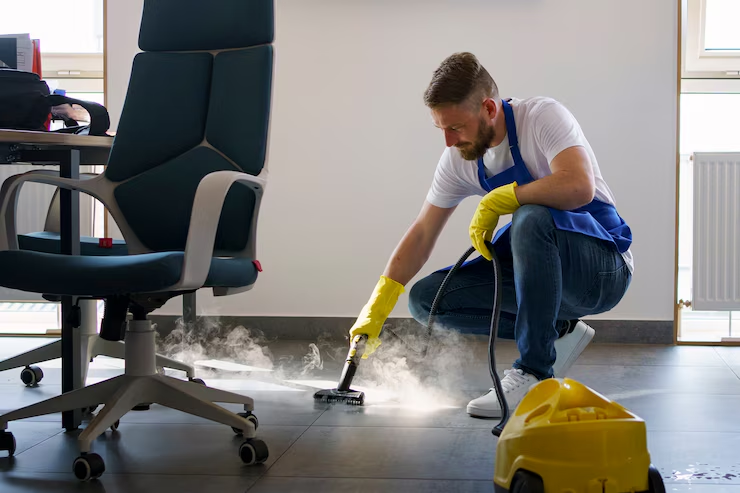How to Prevent Recurring Blocked Drains in Your Homes
- Henry Deacon
- Jul 4
- 3 min read

Blocked drains are a common nuisance in many homes, where ageing infrastructure and modern plumbing demands often clash. While a single blockage might be manageable, recurring blocked drains can disrupt daily life and cause costly damage. Fortunately, there are effective ways to keep your drains clear and avoid repeated problems. This guide shares simple yet impactful steps to help homeowners prevent the hassle of drain unblocking.
1. Be Mindful of What Goes Down the Drain
The most common cause of blocked drains is the improper disposal of waste. Grease, cooking oil, coffee grounds, and food scraps can harden and stick inside pipes. Over time, this creates tough clogs that require professional drain unblocking.
To avoid this:
Dispose of food waste in the bin.
Use sink strainers to catch debris.
Avoid pouring oil or fat down the drain. Let it cool and throw it away instead.
Small habits like these go a long way in preventing recurring blocked drains.
2. Install Drain Guards in Bathrooms
Hair and soap scum are major culprits behind bathroom drain blockages. Every time you shower or wash, loose hair and residue can build up in the pipes.
Installing drain guards is a quick fix that helps catch hair before it reaches your plumbing system. Additionally, cleaning the guards regularly ensures they function effectively and reduces the need for frequent drain unblocking in Llanelli homes.
3. Flush Drains with Hot Water Weekly
A simple routine like flushing your drains with hot water once a week can help dissolve minor grease or soap buildup. Hot water helps push any stuck debris through the system, preventing it from hardening and becoming a blockage.
For even better results, add a tablespoon of baking soda followed by vinegar before pouring the hot water. This natural combination works as a mild cleaner and deodoriser without damaging your pipes.
4. Don’t Use Chemical Cleaners Frequently
While chemical cleaners may seem like a quick solution for drain unblocking, they can damage your pipes with repeated use. Harsh chemicals erode the inner lining of pipes, making them more prone to cracks and leaks over time.
Instead, opt for enzyme-based cleaners that are eco-friendly and safe for regular use. These products digest organic matter and help keep your drains free-flowing without the need for emergency drain unblocking.
5. Watch for Early Warning Signs
Catching a blockage early can prevent a bigger problem later. Look out for these signs:
Water is draining slowly from sinks or bathtubs.
Gurgling sounds are coming from the drains.
Foul odours near the plughole.
These warning signs often point to a partial blockage. Addressing it quickly, either through a plunger or a professional service, can save you from a full-blown clog that might demand urgent drain unblocking.
6. Avoid Flushing Non-Flushable Items
Toilets are not designed to handle items like wet wipes, cotton wool, sanitary products or nappies—even those labelled as ‘flushable’. These products do not break down easily and can lead to severely blocked drains.
Always dispose of these in the bin. Educate everyone in the household, especially children, about what can and cannot go into the toilet. Prevention starts with good habits.
7. Keep Outdoor Drains Free from Debris
Autumn leaves, dirt, and debris can block outdoor drains, especially after heavy rainfall. Regularly check your garden drains and remove any buildup that could cause overflow or backups.
Installing drain covers can prevent larger debris from entering the system. Keeping gutters clean also helps reduce the risk of blockages forming in external drainage systems.
8. Schedule Regular Professional Drain Maintenance
Even if your drains seem to be working fine, it’s wise to schedule a routine inspection from a professional plumber. A qualified expert can spot early signs of wear, grease build-up, or root infiltration—issues that aren't always visible.
A yearly maintenance check can help you avoid recurring problems and reduce the need for emergency drain unblocking. Professional inspections are especially useful for older homes with outdated plumbing.
9. Consider Pipe Relining or Upgrades
If you experience recurring blocked drains despite taking preventive measures, the issue might lie in your pipework. Old clay pipes, cracked joints, or collapsed sections are common in some properties.
In such cases, pipe relining or replacement may be necessary. This modern, non-invasive solution restores your drainage system from the inside out and significantly reduces the chance of future blockages.
Conclusion
Recurring blocked drains can be a source of constant stress for homeowners. However, with the right practices—from using drain guards and hot water flushes to scheduling regular maintenance—you can prevent blockages and extend the life of your plumbing system. Early action, good habits, and professional help form the foundation of a healthy drainage setup.
For expert and reliable drain unblocking, trust the experience and efficiency of clear all drain blockages. Their team specialises in identifying the root causes of blockages and providing long-term solutions to keep your home running smoothly.


Comments